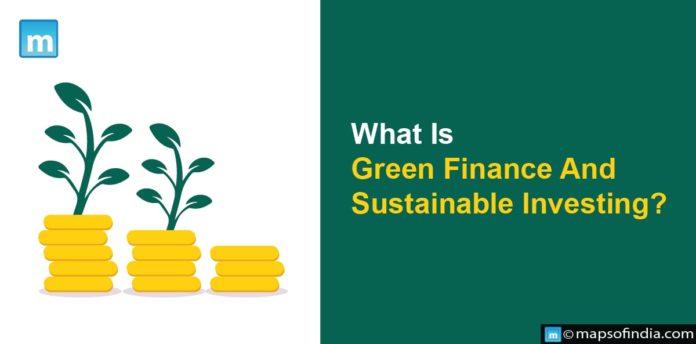In an era filled with environmental concerns and increased knowledge of climate change, the financial sector is dramatically shifting toward sustainability. Green finance and sustainable investing have become important tools for linking economic operations with environmental responsibilities. But what exactly are these terms? This article dives into the concepts of green finance and sustainable investing, examining their definitions, goals, and impact on crafting a more sustainable future.
What is Green Finance?
Green finance refers to financial instruments and investments developed to assist environmentally friendly projects and activities. The primary purpose is to promote long-term development by giving funds to projects that aid in the transition to a low-carbon, ecologically responsible economy. This includes expenditures in renewable energy, energy efficiency, waste management, and other programs to decrease human activity’s ecological imprint. Green finance’s fundamental principles concentrate on incorporating environmental, social, and governance (ESG) elements into financial decision-making processes. Financial institutions and investors can examine their investments’ long-term sustainability and ethical consequences by including these variables.
What is Sustainable Investing?
Sustainable investing is a broader notion that includes a variety of techniques and approaches aimed at producing beneficial environmental and social consequences in addition to financial gains. Sustainable investing, also known as socially responsible investing (SRI) or impact investing, tries to reconcile financial goals with ethical considerations.
There are various ways to sustainable investing, including:
-
ESG Integration
ESG Integration entails considering environmental, social, and governance factors when evaluating possible investments. Companies that excel at ESG are frequently regarded as more resilient and better positioned for long-term success.
-
Negative Screening
Negative screening occurs when investors eliminate particular industries or companies due to ethical or moral concerns. An investor, for example, may avoid investing in companies involved in tobacco, weaponry, or fossil fuels.
-
Positive Screening
Positive screening is a strategy that seeks out investments meeting particular sustainability criteria. Investors may be interested in companies with outstanding environmental practices, renewable energy projects, or social impact activities.
-
Impact Investing
Impact investing strives to provide measurable, positive social and environmental impacts and financial gains. Impact investors aggressively pursue projects and businesses that solve specific global issues such as climate change, poverty, and inequality.
Driving Forces Behind Green Finance and Sustainable Investing
Several forces contribute to green finance and sustainable investing gaining prominence:
-
Climate Change Concerns
The pressing need to address climate change and its negative consequences has heightened interest in long-term solutions. Investors are becoming more aware of the dangers connected with climate-related catastrophes and the need to back enterprises that promote environmental resilience.
-
Regulatory Initiatives
Governments and regulatory agencies are progressively enacting policies to improve financial market sustainability. These could include disclosure requirements, tax breaks, or rules to encourage green investments.
-
Changing Investor Preferences
There has been a movement in investor attitudes, with a growing need for investments that correspond with personal beliefs and ethical considerations. Investors are looking for possibilities that not only generate financial rewards but also help to improve societal and environmental consequences. Green finance and sustainable investing have the potential to play a significant role in tackling today’s environmental and social concerns. Investing in sustainable practices can create a more just and equitable world for all.




